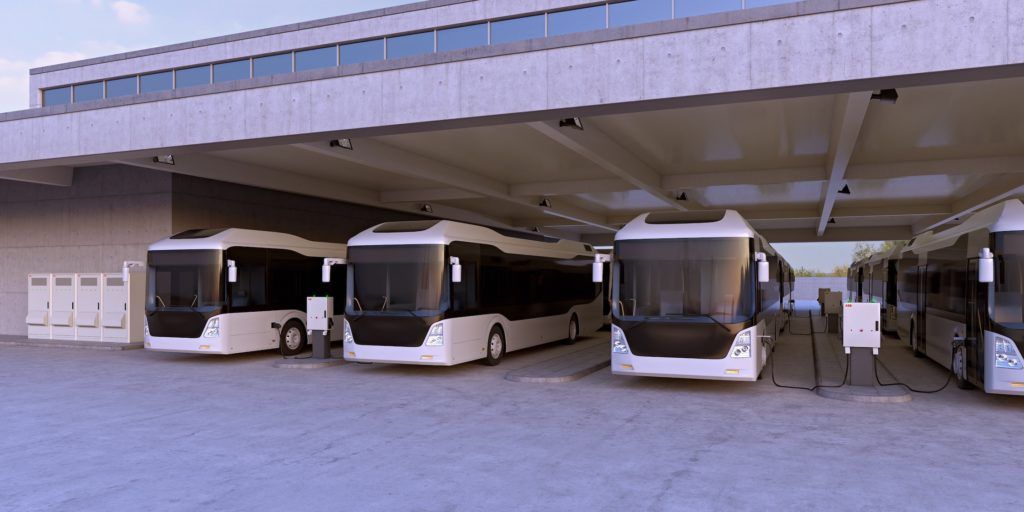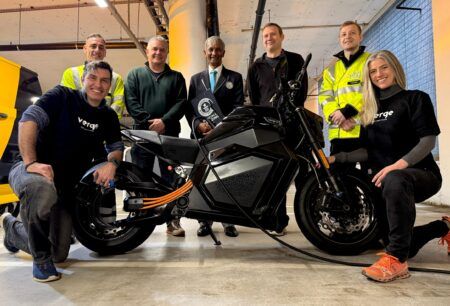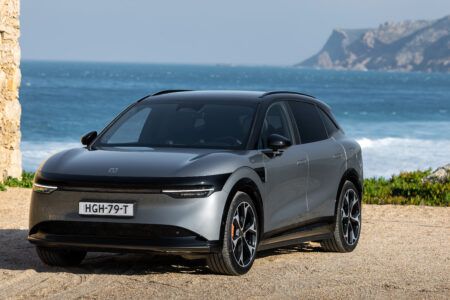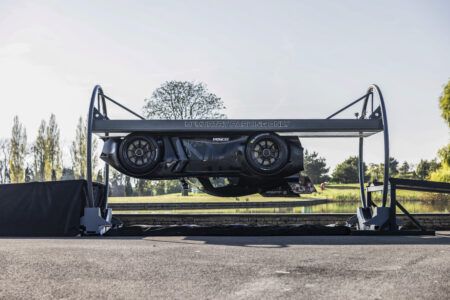ABB E-mobility has announced details of its new HVC360 fleet charging solution, putting the power to drive change in the hands of fleet managers everywhere.
With the decarbonization of road transport taking center stage in many nations’ climate policies, recent years have seen huge strides made towards the provision of electric mobility solutions. But while the growing number of public charging points is excellent news for EV drivers, these alone do not meet the needs of electric fleets. Despite comprising just 4% of vehicles, buses and trucks contribute a staggering 40% of global transport emissions, making their rapid electrification a vital step in the decarbonization process.
Almost 66,000 electric busses were sold worldwide in 2022, around 4.5% of total bus sales. The electrified share of the bus market is rising quickly, however, by 20% in Europe and 27% in the US, with India accounting for more demand than the US and Europe combined, and the Chinese market acquiring 98% of all e-busses globally. This brings a significant demand for more flexible and efficient charging solutions to enable e-bus fleets to keep running from the space-restricted urban depots where they are often based. ABB E-mobility claim its new HVC360 power cabinet represents a big step in helping to deliver a solution for depot charging, embracing the complexities of fleet operations rather than forcing them to adapt.
Each HVC360 power cabinet enables the connection of up to four charging stations as far as 100m from the power cabinet itself, while its proven, compact design allows installation back-to-back, side-to-side, or along a wall. Dynamic charging capability allows the HVC360 to allocate differing levels of power to each charging station, based on the number of vehicles plugged in or their charging requirements, while the unit also supports all charging interfaces simultaneously, from CCS to pantograph.
“Today’s launch of the HVC360, on World Environment Day, represents yet further commitment from ABB E-mobility to meet the complex and sometimes operationally rigid needs of bus and truck fleet operators, and comes backed by decades of development and unrivalled field experience,” said Chris Nordh, Global Head of the Fleet & Transit business at ABB E-mobility. “Even more impressive than the unit’s exceptional quality and power density are its extraordinary flexibility and interoperability with a wide range of OEMs, making it a truly global solution. We are very excited to see how HVC360 helps customers of all shapes and sizes to reduce their running costs and emissions as the heavy vehicle sector catches up to the excellent progress already made in the electrification of passenger vehicles.”
Another example of HVC360’s global near-term potential can be found in the haulage industry. Nearly 60,000 medium- and heavy-duty electric trucks were sold worldwide in 2022, just 1.2% of the truck market. But with the sector continuing to expand at a CAGR (Compound Annual Growth Rate) as high as 47.5%[3], global sales are expected to surpass 1.1 million[4] per year by the end of the decade. Such rapid growth will be necessary to meet the ambitious climate goals of many nations around the world, but can only be achieved if supported by flexible, efficient charging infrastructure, both en-route and in depots.





